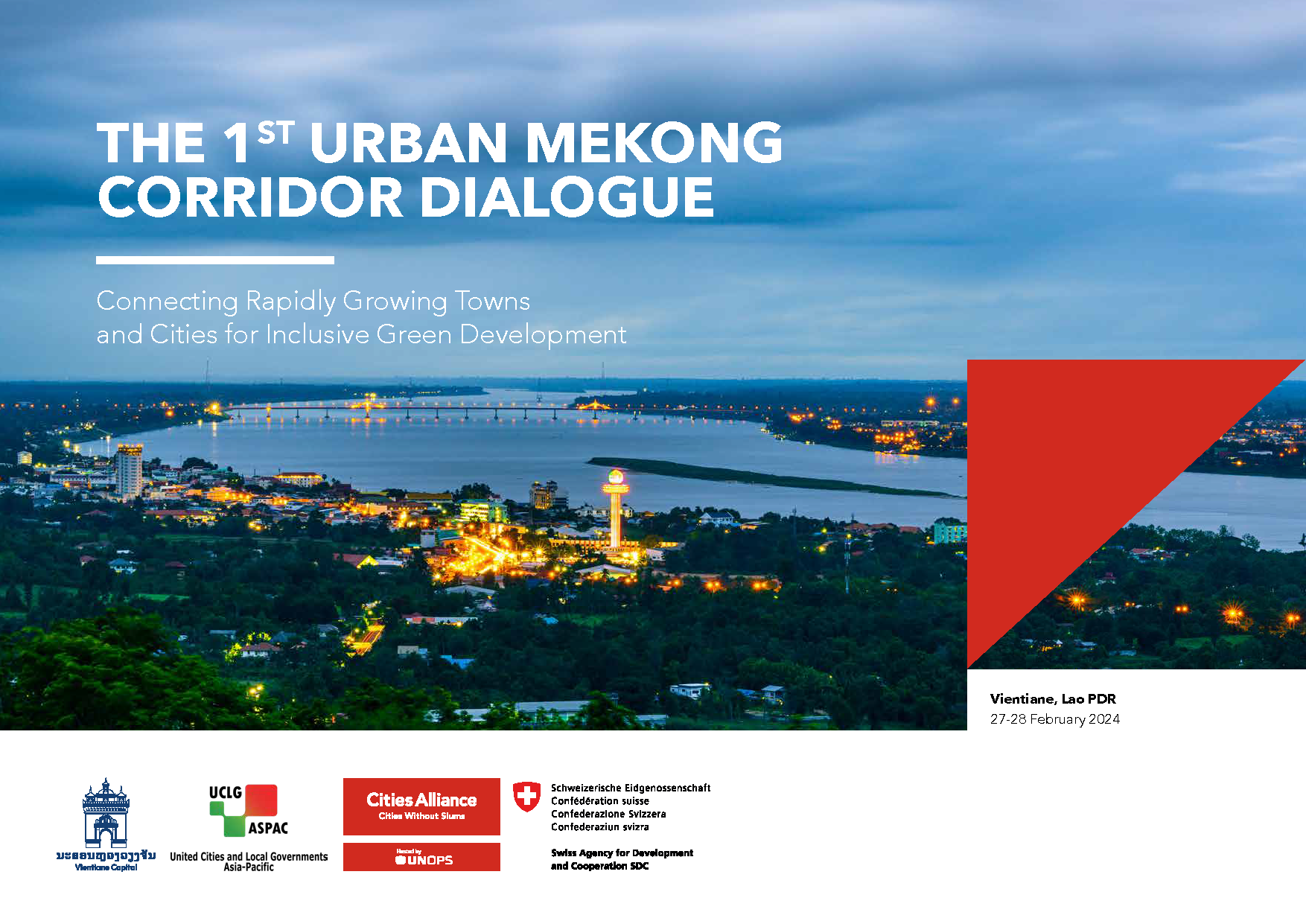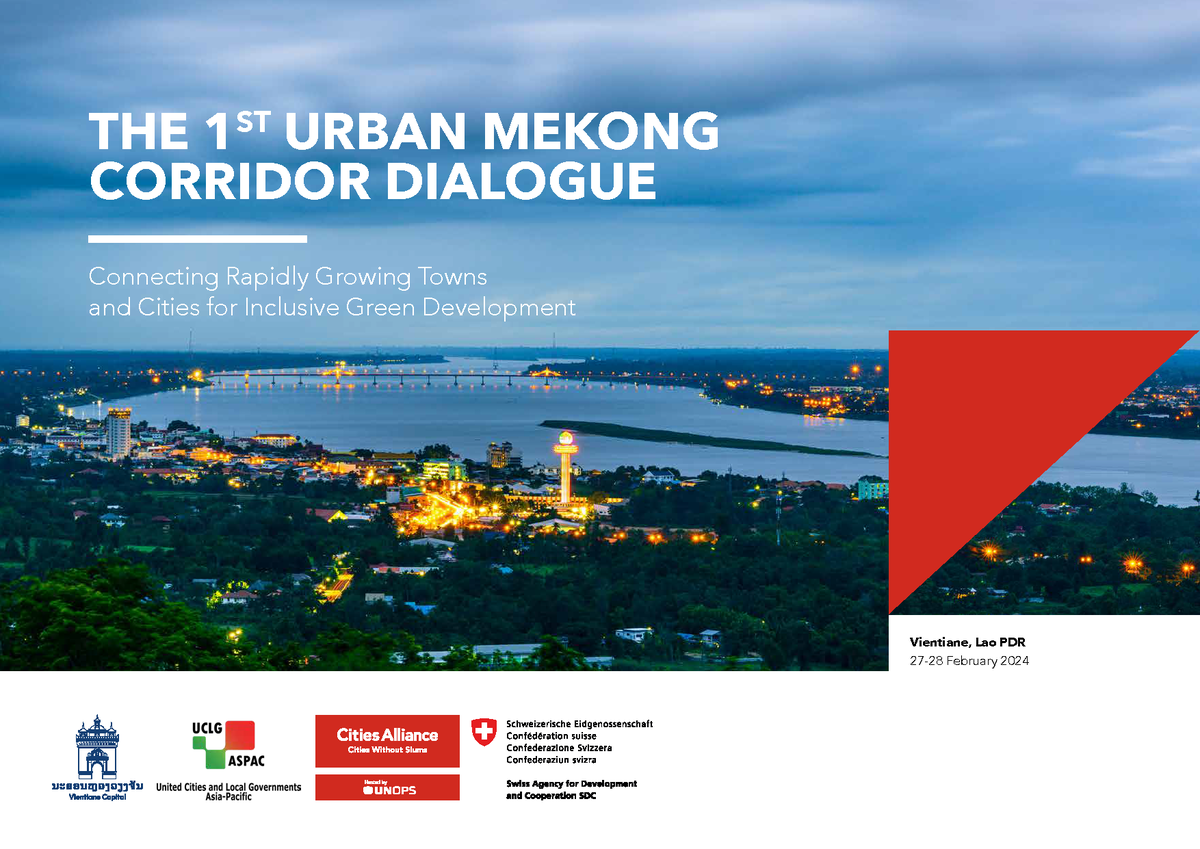- Who We Are
- How We Work
- Regional / Country Initiatives
- Legacy
- Core Themes
- Working Groups
- Portfolio & Results
- Newsroom
- Resources
The 1st Urban Mekong Corridor Dialogue Report

This report, Connecting Rapidly Growing Towns and Cities for Inclusive Green Development, captures the visions and actions of Mekong cities for inclusive green development, shared at the 1st Urban Mekong Corridor Dialogue in Vientiane, Lao PDR, 27-28 February 2024.

The need for inclusivity and collaboration is becoming a key theme as individual cities and towns across Southeast Asia face similar environmental, economic, and social challenges.
Recognising common interests and the need for shared sustainable solutions, city representatives from across the Mekong Corridor came together for a two-day Dialogue under the Urban Mekong Corridor Initiative (UMCI).
The Dialogue aimed to build partnerships and foster common visions for inclusive and green development along the Mekong Corridor.
Cities shared their experiences with solid waste management and nature-based solutions, as these are topical issues across the region. Government representatives also shared their on-the-ground reflections, showcasing practical approaches and challenges.
It culminated with the participating cities pledging a declaration of commitment to that goal and the principles of the UMCI, laying a solid foundation for subsequent meetings.
The report includes highlights of the discussions, each participating city's vision for inclusive and green growth, and case studies on how the cities are managing solid waste and exploring the management of water-related issues through nature-based solutions. For example, forests, floodplains, wetlands, and mangroves can be used alongside traditional infrastructure to develop hybrid solutions for urban management issues such as flood management. Reducing plastic pollution in the Mekong River was also a recurring theme.
The Dialogue was co-hosted by the City of Vientiane, UCLG ASPAC, and Cities Alliance. The UMCI Initiative is financed by the Swiss Agency for Development and Cooperation (SDC) through the Resilient Systems of Secondary Cities and Migration Dynamics Programme.
